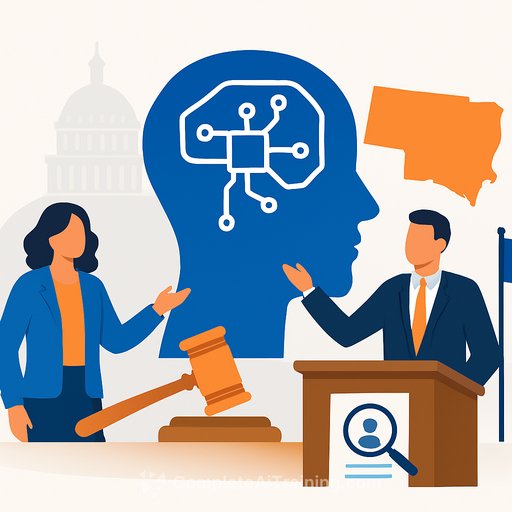Meta and UK Government Launch £1 Million Open Source AI Fellowship
Meta and the UK Government have teamed up to launch the Open Source AI Fellowship, a £1 million initiative to place top AI experts directly within Whitehall. Supported by Meta’s grant to the Alan Turing Institute, this programme embeds specialists across government departments to develop advanced tools that enhance agility and support the government’s Plan for Change.
What the Fellowship Offers
The fellowship will focus on applying open-source AI models, including Meta’s Llama models, to solve high-security challenges. Projects include live language translation for national security and analysing construction planning data to speed up approvals and accelerate home building.
Fellows will also expand Humphrey, an AI suite already helping civil servants by summarising long documents, taking notes during meetings, and collating consultation responses. By automating these administrative tasks, Humphrey has demonstrated how open-source AI can boost productivity and allow staff to concentrate on policy and delivery.
Why Open Source AI Matters
Dr Jean Innes, CEO of the Alan Turing Institute, highlighted the potential for open-source technologies to improve government productivity, decision-making, and service delivery. Meta’s Chief Global Affairs Officer, Joel Kaplan, emphasized that bringing private sector innovation into government helps challenge traditional approaches and foster new thinking.
Kaplan also stressed that focusing on open-source AI is key for the UK to build sovereign AI capabilities, aligning with the Prime Minister’s vision for the UK to be an “AI maker not an AI taker.”
Ownership and Security
All tools developed through the programme using open-source models will be government-owned. Sensitive data will remain under official control, and models can be adapted freely to meet specific needs without vendor lock-in. Additionally, all use cases will be openly published to benefit the public sector at large.
A recent report by Meta and the Social Market Foundation supports this approach, showing that open-source AI can deliver better value for taxpayers, improve security auditing, and strengthen strategic autonomy.
Government Endorsements and Success Stories
Technology Secretary Peter Kyle called the fellowship “the best of AI in action” — open, practical, and focused on public good. He pointed to the success of Caddy, an AI assistant co-developed with Citizens Advice, which has halved response times on thousands of calls and doubled advisors' confidence.
The government has also open-sourced Caddy, allowing call centres worldwide to adopt the technology for debt advice, legal guidance, and consumer rights support. The Cabinet Office now uses Caddy to help grant-making teams access expert guidance quickly, speeding up decisions and securing better value.
Programme Details and Future Steps
- The fellowship will run for 12 months starting January 2026.
- Applications will open soon.
- Fellows will work on AI tools in areas like national security, public health, and planning reform.
- They will join DSIT’s Incubator for AI, the team behind Humphrey, to move experimental ideas into operational systems delivering measurable benefits.
Alongside the fellowship, the government has launched the next phase of the AI Knowledge Hub. This platform shares real case studies, tools, and guidance to help teams adopt AI responsibly, avoid duplication, and scale from pilots to practical results. New features include a Prompt Library designed to help departments boost productivity and deliver services faster and more reliably.
Final Thoughts
This collaboration between Meta, the Alan Turing Institute, and the UK Government demonstrates a clear commitment to embedding open-source AI expertise within public services. By focusing on practical applications and transparency, the initiative aims to support the UK’s ambition to transform public service delivery with AI.
For government professionals interested in strengthening their AI skills to better engage with initiatives like this, exploring relevant AI courses for government roles can provide practical knowledge and tools.
Your membership also unlocks:






